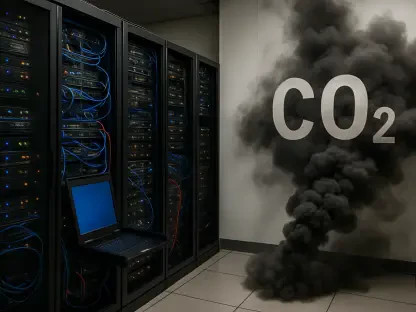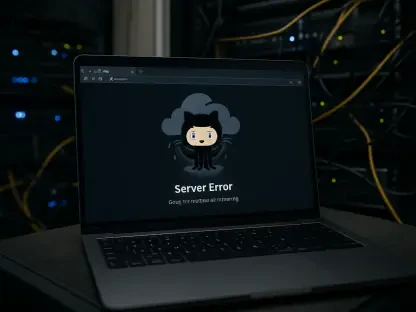The Subcommittee on Economic Growth, Energy Policy, and Regulatory Affairs of the United States House Committee on Oversight and Accountability recently held a crucial hearing entitled “America’s AI Moonshot: The Economics of AI, Data Centers, and Power Consumption.” This session focused on how the United States can effectively leverage artificial intelligence (AI) to enhance its economic competitiveness, fortify national security, and sustain its leadership position in the global technology arena. Through testimonies and discussions, the committee members emphasized the pivotal role of AI and the intricate balance between innovation, energy resource management, and legislative support.
The Role of the Private Sector in AI Advancements
A key theme that emerged during the hearing was the recognition of the private sector as a key driving force in AI advancements. Neil Chilson from the Abundance Institute was a significant voice in this regard, underscoring the sector’s exceptional proficiency in innovation, investment, and the deployment of AI technologies. Chilson highlighted the many ways in which AI is redefining job markets and fostering the creation of new industries, products, and services, thereby contributing immensely to a competitive and dynamic economy. Chilson also pointed out the undeniable potential of American companies to lead in cutting-edge fields and generate high-quality jobs.
Moreover, Chilson emphasized the necessity for government intervention to address potential challenges that could impede the full realization of AI’s transformative potential. While the private sector demonstrates notable prowess and agility in driving AI innovations, Chilson argued that the government must play a complementary role to ensure that these advancements translate effectively into widespread economic benefits. Among these roles, effective legislation, strategic partnerships, and targeted investments were noted as being critical in fostering an environment conducive to sustained AI growth and innovation. The private sector’s ability to quickly adapt and push the frontier of AI technology will need an enabling regulatory framework to truly flourish.
Energy Demands of AI Development
The hearing also shed light on the escalating energy demands driven by the rapid growth of AI and its associated technologies. Josh Levi from the Data Center Coalition provided critical insights into how meeting AI’s burgeoning energy needs will require a diverse array of energy resources and technologies. He expounded on the data center industry’s pivotal role in advancing novel energy solutions such as advanced nuclear, enhanced geothermal, and carbon capture technologies. Levi noted the significant investments being made to expand existing generation resources to keep up with the rising energy demands of AI.
Further amplifying this discussion, Mark Mills from the National Center for Energy Analytics questioned the sufficiency of current power supplies to support the rapid expansion of cloud infrastructure, which is crucial for AI’s continued progress. Mills argued that existing assets, coupled with renewable energy sources, are insufficient to meet the growing demand. He advocated for a substantial increase in the utilization of natural gas, supplemented by new combustion turbines and engines, to bridge this imminent energy shortfall. The integration of traditional and innovative energy sources emerges as a necessary strategy to sustain the expansion and deployment of AI technologies.
Legislative Support for AI and Energy Development
Members of Congress articulated a strong consensus on the importance of American energy production as a cornerstone for realizing AI’s full potential. During the hearing, Subcommittee Chairman Eric Burlison outlined President Trump’s vision for America to ascend as a global leader in AI, emphasizing that the breakthroughs AI promises could drive immense economic benefits and unlock new dimensions of human potential. Burlison stressed that achieving these aspirations would necessitate legislative support to streamline energy permitting processes and effectively deploy new energy sources.
Echoing these sentiments, Neil Chilson pinpointed specific areas where legislative backing is essential for overcoming barriers to AI-driven economic growth. Effective and timely legislative measures could simplify regulatory hurdles, foster public-private partnerships, and ensure that energy infrastructure keeps pace with AI advancements. Such interventions are seen not just as support measures but as strategic necessities for enabling the United States to harness the full spectrum of AI capabilities. By aligning legislative efforts with the needs of energy and AI industries, Congress can play a decisive role in propelling the nation toward unprecedented technological and economic milestones.
Addressing Energy Policy and Infrastructure
The Subcommittee on Economic Growth, Energy Policy, and Regulatory Affairs of the U.S. House Committee on Oversight and Accountability recently conducted an important hearing titled “America’s AI Moonshot: The Economics of AI, Data Centers, and Power Consumption.” This hearing was centered on how the U.S. can effectively harness artificial intelligence (AI) to boost its economic competitiveness, strengthen national security, and maintain its leadership in the global tech landscape. During the session, through various testimonies and discussions, committee members highlighted the critical role of AI and the complex balance between fostering innovation, managing energy resources efficiently, and providing the necessary legislative support. The session underscored the need to address the growing energy demands of data centers while promoting sustainable practices and ensuring that the U.S. remains at the forefront of technological advancement.









